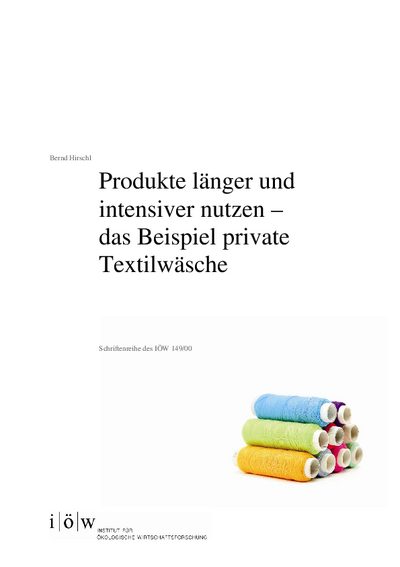Produkte länger und intensiver nutzen - das Beispiel private Textilwäsche
The text was written as a case study within the scope of the project “New Concepts of Product Use. Environmental Benefits, Implementation Barriers and Development Options of Strategies for Useful Life Extension and Use Intensification of Products.“ Private textile washing constitutes a routine activity which is predominantly (i.e. by far more than 90 %) carried out at home by German households. Only about 3 million households have to rely on external washing facilities. At the core of the analysis were joint forms of use and washing services, beyond it other relevant concepts of use like secondhand trade or maintenance. It became clear that shared laundry rooms or laundrettes, which have a declining and stagnant use respectively, offer ecological saving potentials indeed. This fact could be demonstrated by a systematic comparison between a household and a laundrette, in the course of which productivity gains ranging from 1.4 to 1.9 depending on the specific scenario could be detected. In total the demand and use of traditional washing services is currently decreasing. Small increases and perspectives for a positive development, however, can be identified in newer market segments such as shirt and bed-linen washing services.



